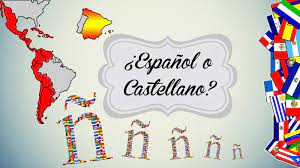 You’ve heard the one about the United Kingdom and the United States – two countries divided by the same language. That’s good; witty but true. Not only is the pronunciation quite different, but so is the spelling sometimes (, eg colour v color, honour v honor) and usage. The two versions of English, commonly known as Oxford (or BBC) English and American English, often have different words for the same thing, eg bonnet (of a car) v hood; boot v trunk; curtains v drapes; wardrobe v closet.
You’ve heard the one about the United Kingdom and the United States – two countries divided by the same language. That’s good; witty but true. Not only is the pronunciation quite different, but so is the spelling sometimes (, eg colour v color, honour v honor) and usage. The two versions of English, commonly known as Oxford (or BBC) English and American English, often have different words for the same thing, eg bonnet (of a car) v hood; boot v trunk; curtains v drapes; wardrobe v closet.
They say the same about Portuguese from Portugal and Portuguese in Brazil; also French and Canadian French or Quebequois.
Well, I have to tell you that it’s also similar in the Spanish-speaking world. There are 20 countries or territories around the world where Spanish is the official or de facto language, testament to the success of Spain as a colonial power.
Pronunciation usage and vocabulary vary from country to country. In many isolated areas, the Spanish spoken is closer to the original Spanish spoken by the conquistadores than to modern-day castellano. In others, local languages have had a direct influence on the Spanish they inherited from the colonial invaders.
One word which highlights this difference rather well is tortilla. In Spain this is an omelette; in Central America and Mexico it’s a flat maize pancake. In colloquial usage it can mean lesbian sex and a prostitute.
Countries Where Spanish is an Official Language
There are 19 countries other than Spain where Spanish is an official or de facto language. In fact, Spanish has the largest number of native speakers besides Mandarin Chinese. With 380 million native speakers, Spanish surprisingly surpasses even English for the number of native speakers, to the tune of over 100 million.
Background
Spain sought to expand its influence into the New World after Christopher Columbus discovered it in 1492. The conquistadores headed to America, as did the other great colonial nations of the time, like the Dutch, English and Portuguese. But Spain was more successful, which is why all but five countries in South and Central America speak Spanish, the exceptions being Belize (English), Brazil (Portuguese), French Guinea (French), Guyana (English) and Surinam (Dutch).
The 20 countries
Let’s take a look at the 20 countries that have Spanish as an official or de facto language. They are organised by continents and regions.
Africa
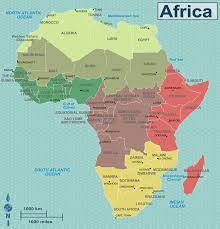 Equatorial Guinea- a small country in central Africa, this country is named for its location on the Equator.
Equatorial Guinea- a small country in central Africa, this country is named for its location on the Equator.
Caribbean Sea
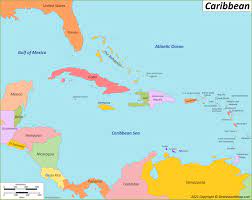 Cuba - island that sits where the Caribbean Sea, the Gulf of Mexico, and the Atlantic Ocean meet.
Cuba - island that sits where the Caribbean Sea, the Gulf of Mexico, and the Atlantic Ocean meet.
Dominican Republic - on an island shared with Haiti (French-speaking).The original name of the island was Hispaniola.
Puerto Rico - territory owned by the United States, both English and Spanish are official languages.
Central America
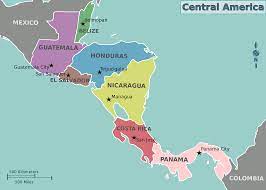 Costa Rica - means "rich coast" due to the amount of gold jewellery worn by the natives when discovered by Christopher Columbus.
Costa Rica - means "rich coast" due to the amount of gold jewellery worn by the natives when discovered by Christopher Columbus.
El Salvador - means "the Saviour”, ie Jesus Christ.
Guatemala - largest population in Central America.
Honduras - means "depths". The country has a high poverty index.
Nicaragua - Spanish is the de facto language. It is the largest Central American country by area.
Panamá - bridge between Central and South America, broke away from Colombia with the help of the United States Army, which then oversaw the completion of the Panama Canal.
Belize - formerly British Honduras, does not recognise Spanish as its official language, yet it is the de facto language, but it is not officially recognized by the government as the official language of Belize, which remains English.
Europe
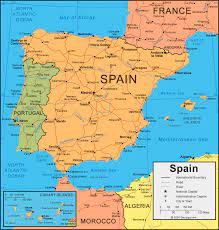 Spain - country where Spanish originated that colonised all other future Spanish-speaking countries
Spain - country where Spanish originated that colonised all other future Spanish-speaking countries
North America
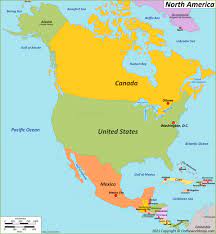 Mexico - the 13th largest country in the world by area, has over 126 million inhabitants, Spanish is the de facto language.
Mexico - the 13th largest country in the world by area, has over 126 million inhabitants, Spanish is the de facto language.
South America
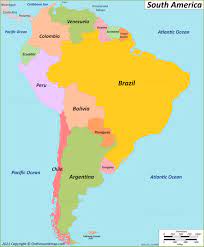 Argentina - Spanish is the de facto language. It is the largest Spanish-speaking country by area.
Argentina - Spanish is the de facto language. It is the largest Spanish-speaking country by area.
Bolivia - has two capitals, a constitutional one (Sucre) and an executive one (La Paz).
Chile - Spanish is the de facto language. It is a long strip of land with the Andes mountains to the east and the Pacific Ocean to the west.
Colombia - second only to Brazil in its level of biodiversity, it is categorised as a "megadiverse" country due to so much biodiversity.
Ecuador - named for its location on the Equator.
Paraguay - 90% of the population also speaks a dialect of Guaraní in addition to Spanish.
Perú - considered a megadiverse (biodiversity) country.
Uruguay - Spanish is the de facto language. Despite territorial disputes involving Spain and Portugal and Brazil and Argentina, Uruguay has remained independent.
Venezuela - one of the first countries to declare independence from Spain. Named after Venice in Italy.
***
There are a few oth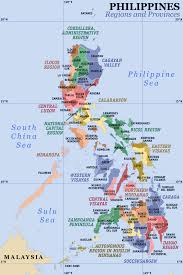 er places where Spanish holds significant influence, such as Andorra in the Pyrenees between Spain and France, Gibraltar, on the southern tip of Spain, which belongs to the United Kingdom, and the United States, which is second only to Mexico when it comes to the number of native Spanish speakers.
er places where Spanish holds significant influence, such as Andorra in the Pyrenees between Spain and France, Gibraltar, on the southern tip of Spain, which belongs to the United Kingdom, and the United States, which is second only to Mexico when it comes to the number of native Spanish speakers.
A word or two on the Philippines, which was a Spanish colony for some four centuries. Spanish was the official language of the archipelago from the beginning of Spanish rule in the late 16th century, through the Philippine–American War (1899-1902) and subsequent colonisation by the USA and remained co-official after independence in 1946, along with Filipino and English, until 1973. Its status was initially removed in 1973 by a constitutional change, but after a few months it was re-designated an official language again by a presidential decree. Under the current constitution, Spanish is designated as an auxiliary or "optional and voluntary language".
They used to say that the sun never set on the Spanish Empire. Now that it's empire is long gone, you could say that the sun never sets on a Spanish speaker.
© Don Pablo
Additional material courtesy of corelanguages.com, geology.com, Pinterest, Wikimedia Commons, Wikipedia, and World Maps.